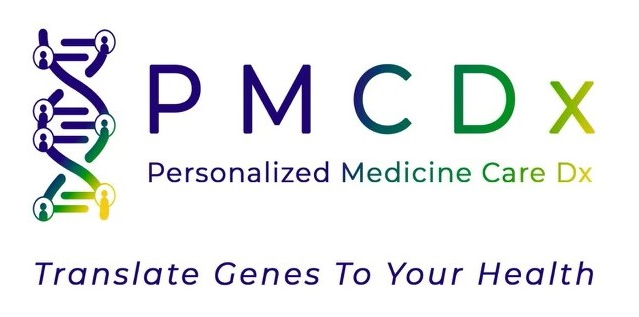| APC |
Heterozygous pathogenic variants in APC are associated with both classic and attenuated familial adenomatous polyposis (FAP), Gardner syndrome, Turcot syndrome, and Hereditary Desmoid disease. |
PubMed: 20301519; OMIM: 175100 |
| ATM |
Heterozygous pathogenic variants in ATM are associated with an increased risk for pancreatic and breast cancer. Additionally, biallelic pathogenic variants in ATM have been associated with ataxia-telangiectasia. |
PubMed: 15928302, 22585167, 20301790, 28418444; OMIM: 607585 |
| BMPR1A |
Heterozygous pathogenic variants in BMPR1A are associated with Juvenile Polyposis Syndrome (JPS). |
PubMed: 17303595, 20301642, 9869523; OMIM: 174900 |
| BRCA1 |
Autosomal dominant pathogenic variants in the BRCA1 gene are the most common cause of hereditary breast and ovarian cancer syndrome (HBOC), which includes approximately a 1-3% risk to develop pancreatic cancer. |
PubMed: 9497246, 12677558, 17416853, 20301425, 22846731 |
| BRCA2 |
Autosomal dominant mutations in the BRCA2 gene are implicated in the hereditary breast and ovarian cancer syndrome (HBOC), which includes an increased risk for pancreatic cancer. Additionally, biallelic mutations in BRCA2 gene are associated with autosomal recessive Fanconi anemia Type D1 . |
PubMed: 12065746, 12677558, 9497246, 17416853, 18042939, 20301425, 22846731, 22187320 |
| CDK4 |
Heterozygous pathogenic CDK4 variants are associated with an increased risk for melanoma. There is currently limited evidence of an association between CDK4 and risk for pancreatic cancer. |
PubMed: 17047042, 28283772, 26337759 |
| CDKN2A |
Heterozygous pathogenic CDKN2A variants are associated with an increased risk for hereditary melanoma and familial atypical multiple mole melanoma-pancreatic carcinoma (FAMMPC) syndrome. |
PubMed: 28283772, 26337759, 21249757, 19260062; OMIM: 600160 |
| FANCC |
Biallelic pathogenic variants in FANCC are responsible for approximately 14% of Fanconi Anemia cases. Studies examining pancreatic cancer risk for heterozygous carriers of pathogenic FANCC variants are contradictory, and additional research is needed. |
PubMed: 20301575, 12750283, 14726700, 26778106; OMIM: 613899, 227645 |
| MSH6 |
While heterozygous pathogenic variants in MSH6 are associated with Hereditary Non-Polyposis Colorectal Cancer (HNPCC), also known as Lynch Syndrome, biallelic pathogenic variants have been associated with constitutional mismatch repair deficiency syndrome (CMMRD). |
PubMed: 20301390, 22692065; OMIM: 120436 |
| EPCAM |
Heterozygous pathogenic variants in the EPCAM gene cause Hereditary Non-Polyposis Colorectal Cancer (HNPCC), also known as Lynch Syndrome, which increases the risk for pancreatic cancer. |
PubMed: 20301390, 23462293 |
| SMAD4 |
Heterozygous pathogenic variants in SMAD4 are associated with Juvenile Polyposis Syndrome (JPS). Biallelic pathogenic variants cause Hereditary Hemorrhagic Telangiectasia (HHT). |
PubMed: 19553198, 20301642 |
| MEN1 |
Autosomal dominant pathogenic variants in the gene MEN1 cause Multiple endocrine neoplasia type 1 (MEN1), which is associated with an increased risk for both endocrine and non-endocrine tumors, including insulinomas and endocrine pancreatic tumors. |
PubMed: 20301710; OMIM: 131100 |
| MLH1 |
While heterozygous pathogenic variants in MLH1 are associated with Hereditary Non-Polyposis Colorectal Cancer (HNPCC), also known as Lynch Syndrome, biallelic pathogenic variants have been associated with constitutional mismatch repair deficiency syndrome (CMMRD). |
PubMed: 20301390, 22692065; OMIM: 120436 |
| MSH2 |
While heterozygous pathogenic variants in MSH2 are associated with Hereditary Non-Polyposis Colorectal Cancer (HNPCC), also known as Lynch Syndrome, biallelic pathogenic variants have been associated with constitutional mismatch repair deficiency syndrome (CMMRD). |
PubMed: 20301390, 22692065; OMIM: 120436 |
| NF1 |
Autosomal dominant pathogenic variants in NF1 cause Neurofibromatosis Type 1, which is associated with several types of benign tumors and cancer. There is some evidence that patients with Neurofibromatosis Type 1 may be at an increased risk for insulinomas and pancreatic endocrine tumors; however, additional research is needed given the rarity of this finding. |
PubMed: 27787920, 26413978, 16861979, 17636453, 20301288, 9639526; OMIM: 613113 |
| PMS2 |
While heterozygous pathogenic variants in PMS2 are associated with Hereditary Non-Polyposis Colorectal Cancer (HNPCC), also known as Lynch Syndrome; biallelic pathogenic variants have been associated with constitutional mismatch repair deficiency syndrome (CMMRD). |
PubMed: 20301390, 22692065; OMIM: 120436 |
| STK11 |
Autosomal dominant pathogenic variants in STK11 have been associated with Peutz-Jeghers syndrome (PJS) which is associated with an increased risk for multiple types of cancer, including breast, ovarian, gastric, colorectal, and pancreatic. |
PubMed: 15121768, 20301443; OMIM: 175200, 260350 |
| TP53 |
Heterozygous pathogenic variants in the TP53 gene are associated with Li-Fraumeni syndrome, a condition that increases risk for many types of cancer. |
PubMed: 20301488, 26014290, 2614290; OMIM: 151623, 191170 |
| TSC1 |
Autosomal dominant pathogenic variants in TSC1 cause Tuberous Sclerosis complex, which is associated with several types of tumors and other clinical conditions, including pancreatic adenomas. |
PubMed: 20301399; OMIM: 605284 |
| TSC2 |
Autosomal dominant pathogenic variants in TSC2 cause Tuberous Sclerosis complex, which is associated with several types of tumors and other clinical conditions, including pancreatic adenomas. |
PubMed: 20301399; OMIM: 191092 |
| VHL |
Heterozygous pathogenic variants in VHL cause von Hippel-Lindau (VHL) syndrome, which increases the risk for many types of cancer, including pancreatic neuroendocrine tumors, hemangioblastoma, clear cell renal cell carcinoma, and pheochromocytoma. |
PubMed: 20301636, 27114602, 25834951, 24355456 |
| PALB2 |
Autosomal dominant pathogenic variants in PALB2 have been associated with an increased risk of some types of cancer, including breast and pancreatic cancer. Biallelic pathogenic variants in PALB2 have been associated with Fanconi anemia of complementation group N (FANCN) . For women, the risk for breast cancer has been estimated to be two to three times greater than the population risk. |
PubMed: 17200672, 24870022, 17200668, 21285249, 24141787, 25099575; OMIM: 610355 |
